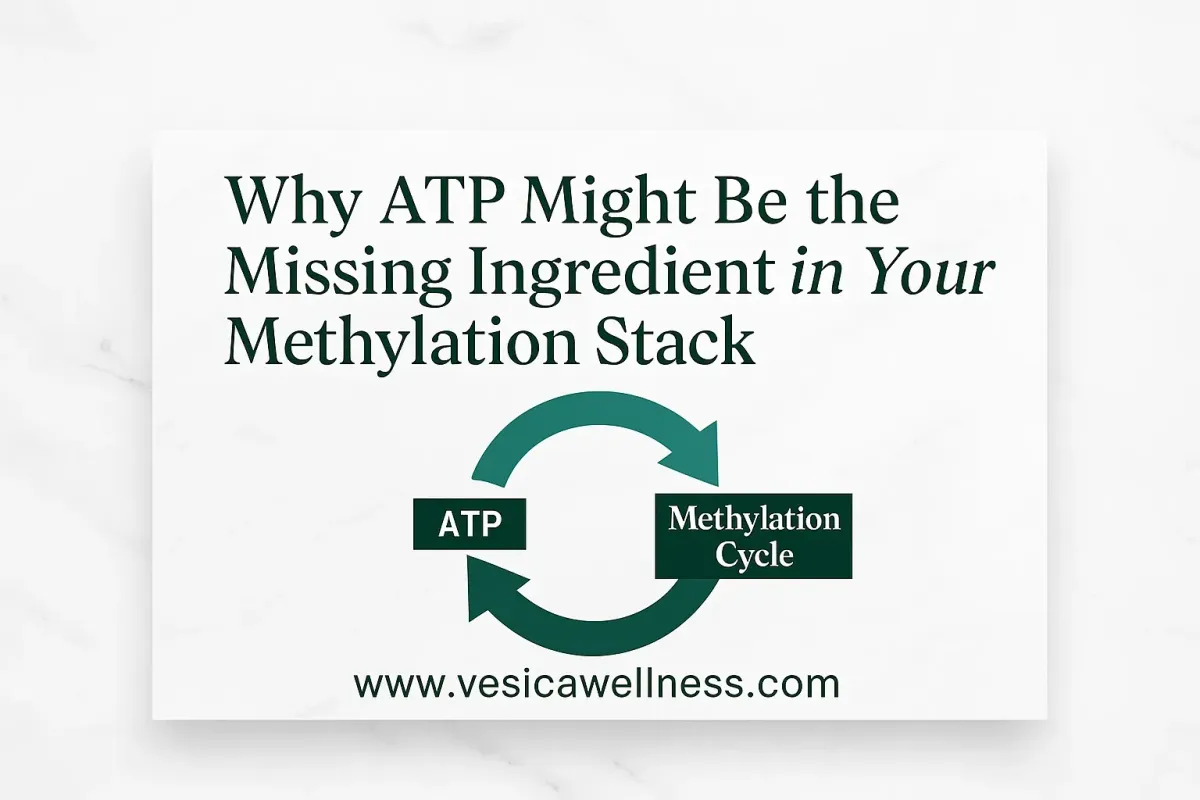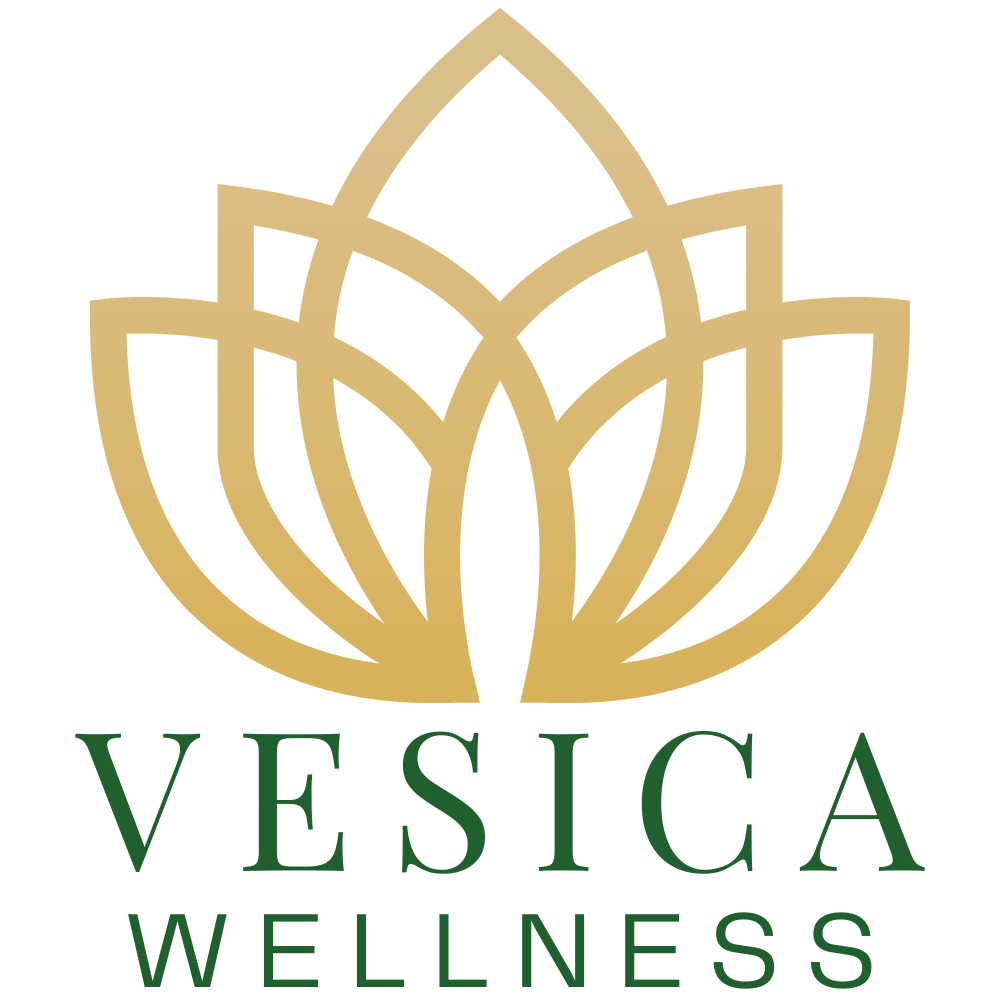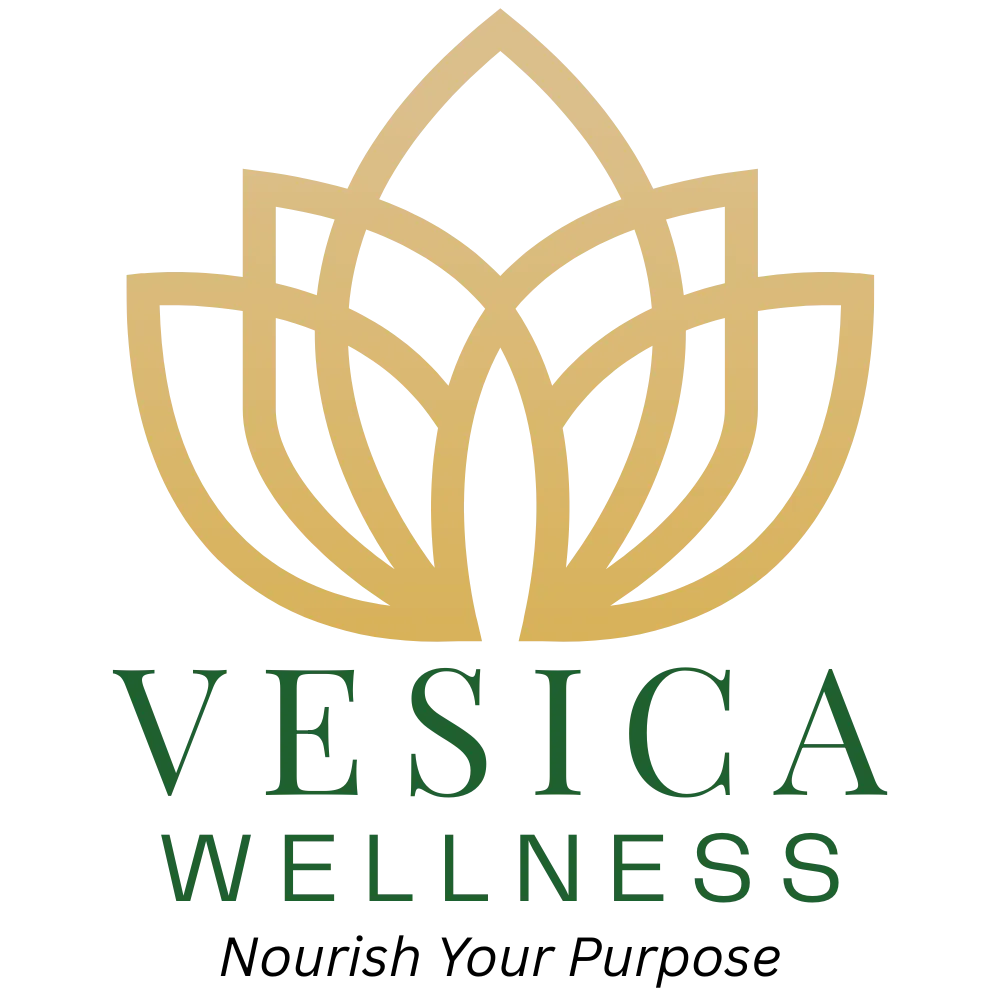
Why ATP Might Be the Missing Ingredient in Your Methylation Stack
You can take all the “right” methylation supplements — Folinic Acid, Adenosyl B12, methylfolate, even P-5-P — and still feel anxious, wired, or exhausted.
If that sounds familiar, the problem might not be too much methylation. It might be too little ATP.
Disclaimer: The information in this article is for educational purposes only and is not intended to diagnose, treat, cure, or prevent any disease. Always consult with your healthcare provider before making changes to your diet, supplement routine, or lifestyle — especially if you have a medical condition or are taking medication.
⚡️ What Exactly Is ATP?
ATP (adenosine triphosphate) is your body’s cellular energy currency — the molecule that powers nearly every biological function. Your brain, muscles, liver, and detox pathways all rely on it.
When your cells produce enough ATP, your body can:
Convert nutrients into usable energy
Repair DNA and tissues
Detoxify efficiently
Balance mood and focus
When ATP is low, those same systems slow down — and your methylation pathways lose their spark.
🔄 The Methylation–ATP Connection
Methylation and ATP are like two gears in the same engine.
Methylation depends on ATP to activate enzymes that move methyl groups through your system.
ATP production depends on methylation to create molecules like creatine, carnitine, and CoQ10 that fuel your mitochondria.
When one slows down, the other follows.
That’s why someone with an MTHFR variant can start supporting methylation, feel great for a while, then suddenly crash. The body begins pushing methyl groups without enough ATP to process them — leading to that “wired-but-tired” feeling.
💥 Signs You May Be Low in ATP
While blood tests rarely measure ATP directly, there are clear functional clues your energy metabolism might be lagging:
Persistent fatigue or “crashes” after activity
Feeling overstimulated by methylfolate or methyl B12
Brain fog or difficulty focusing
Muscle weakness or poor exercise recovery
Sensitivity to stress or caffeine
Trouble falling or staying asleep despite exhaustion
In people with MTHFR, COMT, or MAO variants, these symptoms can show up sooner — because energy demand is already high.
🧬 How Low ATP Affects Methylation
When ATP drops, the body struggles to:
Recycle homocysteine back into methionine efficiently
Create SAMe (S-adenosyl-methionine) — your master methyl donor
Clear neurotransmitters like dopamine and serotonin properly
Support detox pathways that rely on methylation
In short: low ATP can cause methyl groups to build up faster than the body can use them.
That’s one reason people sometimes react poorly to methyl donors. It’s not that their methylation is “broken” — it’s that the system doesn’t have enough cellular energy to run smoothly.
🧠 How Supporting ATP Helps Reduce Overmethylation
When ATP levels rise, methyl groups can flow through the cycle efficiently. This helps:
✅ Reduce overmethylation reactions like anxiety, irritability, or insomnia
✅ Improve tolerance to methyl donors such as methylfolate and methyl B12
✅ Enhance detoxification and liver function
✅ Support neurotransmitter balance for calmer focus and mood
It’s not about turning methylation up or down — it’s about giving your cells the power to self-regulate again.
🌱 Nutrients That Support ATP Production
Adenosyl B12 – The mitochondrial form of B12 that helps convert fatty acids and amino acids into ATP.
Folinic Acid – A gentler folate that supports methylation without overstimulation.
Magnesium Malate – Provides both magnesium (a cofactor for hundreds of enzymes) and malate (a key Krebs-cycle intermediate).
Ribose (D-Ribose) – A sugar molecule that forms the backbone of ATP itself.
CoQ10 & PQQ – Support electron transport and mitochondrial regeneration.
L-Carnitine – Transports fats into mitochondria to be converted into ATP.
Creatine – Helps recycle ATP during times of high energy demand.
Adequate Protein & Minerals – Building blocks for enzymes and coenzymes that maintain energy flow.
🔬 Why Folate Alone Isn’t Enough
Folate and B12 are crucial for methylation, but they can’t create energy on their own.
Without sufficient ATP, those nutrients can accumulate in pathways that are half-powered, leading to side effects like irritability, nausea, or headaches.
Adding gentle ATP support — before or alongside methyl donors — gives your body the foundation it needs to use those nutrients correctly.
🌿 The Vesica Approach: Gentle + Foundational
At Vesica Wellness, we focus on supporting the body’s foundation first — restoring cellular energy before pushing methylation harder.
Our approach combines:
Folinic Acid – A non-methylated folate that nourishes the methylation cycle without triggering anxiety.
Adenosyl B12 – The mitochondrial B12 form that powers ATP production.
ATP Support Formula – Targeted nutrients that help your cells recharge naturally.
Together, these form the core foundation for balanced methylation — so your body can run smoothly without overwhelm or crash cycles.
When energy comes first, methylation follows effortlessly.
🌞 Daily Practices to Naturally Boost ATP
Even the best supplements work best when paired with healthy habits that protect your mitochondria:
Prioritize real rest. Deep sleep is when ATP replenishes most.
Eat whole, nutrient-dense foods. Especially proteins, leafy greens, and healthy fats.
Stay hydrated. Dehydration slows down every biochemical reaction, including ATP production.
Limit excess caffeine. It stimulates ATP demand without necessarily improving production.
Manage stress. Chronic cortisol output drains cellular energy faster than it can be restored.
✨ The Takeaway
ATP is more than an energy molecule — it’s the engine behind methylation itself.
When your cells have enough energy, methyl donors can move through their proper pathways, neurotransmitters stay balanced, and detox processes function as designed.
If you’ve ever felt worse after taking methylfolate or B12, it might not be the nutrients. It might be that your body simply needs more ATP to use them correctly.
💚 Next Step
Ready to give your methylation the energy it deserves?
Explore our foundational energy trio — Folinic Acid, Adenosyl B12, and ATP Support — designed to help your body restore balance naturally.
(For educational purposes only. Not medical advice. This content is not intended to diagnose, treat, or cure any condition.)




